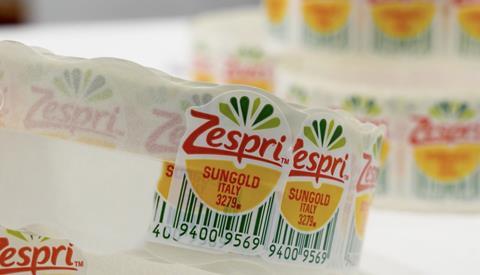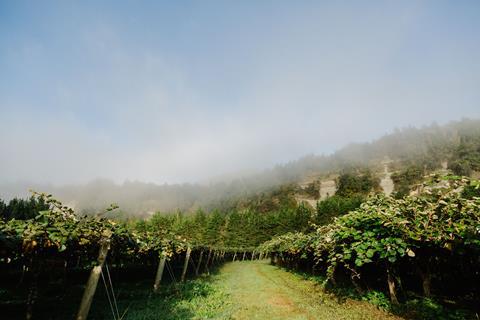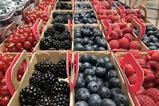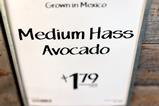In our exclusive interview with chief marketing, innovation and sustainability officer Jiunn Shih, we explore what the sustainability means for the kiwifruit supplier

Jiunn, what would you say sets Zespri apart from others in the industry when it comes to sustainability?
Jiunn Shih: Zespri is focused on delivering value to stakeholders – our growers, partners, or consumers – and our approach to sustainability is no different. Embracing sustainable practices is fundamental. By prioritising innovation and partnerships, we protect and grow value for everyone connected to Zespri, reinforcing our position as a sustainability leader.
We want to address the challenges we see in the world. That’s why we focus on our fruit’s health and nutritional value, on being a climate-resilient industry, and on meeting consumer expectations – for example by having home compostable fruit labels.
We organise our work under three core pillars: our fruit, our environment, and our communities. And we partner with our industry colleagues and suppliers to identify and scale successful solutions across our global supply chain.
One concern many people have is about carbon emissions. What is Zespri doing to reduce them?
JS: Carbon emissions are an important issue to tackle worldwide. We see place equal importance on building resilience to the impact of climate change. It’s a big part of our innovation work, and why we invest in developing new cultivars through our Kiwifruit Breeding Centre, and continue to explore new ways to grow the fruit. While kiwifruit has a lower emissions footprint than many other products, we know there is further work to be done in the supply chain, where most of our emissions come from.

Shipping is a priority for us, as it makes up over 40 per cent of our industry’s emissions. In the last two years, we’ve worked with suppliers to understand the most effective ways to address them. This will take some time, but we have made good progress – working with one of our key shipping partners to to create a low-emissions shipping corridor between New Zealand and Europe, with Zeebrugge as a hub. Green corridors allow customers, shipping partners, governments and investors to work together to explore alternative fuels, upgraded port infrastructure, and advanced shipping technologies.
We are also taking measured steps to assess what is feasible, beginning with our first biofuel trial in 2024. This gives us confidence to explore bigger opportunities. By switching to cleaner fuels and optimising shipping efficiency, we will steadily reduce our supply chain’s carbon footprint. These initiatives are part of our broader commitment to build a climate resilient industry.
What impact do you think home compostable labels will have?
JS: Transitioning to home compostable labels is a big step for us, and a major focus for our packaging and innovation team. It’s more complex than it sounds, and goes beyond the label itself. We have incorporated biodegradable adhesives, inks and materials that meet stringent home and industrial composting certifications. These labels are made from biobased polymers, and represent the highest standard in compostable technology. They offer the same durability and performance as traditional plastic stickers, but are certified to break down completely in home composting environments, leaving no harmful residue.
This year, all of our class one kiwifruit in Europe will carry these labels, with all classes following soon after. This helps us move closer to our goal of 100 per cent of our packaging being recyclable, reusable or compostable. But more than that, it demonstrates the values we share with consumers. People want sustainable choices, and we’re proud to offer solutions that meet these needs while protecting the environment.

How does the ZAG Innovation Fund fit into Zespri’s sustainability vision?
JS: We cannot create lasting change on our own. With the ZAG Fund, we work with innovators and partners to find real solutions to real problems, and we invest in projects and startups that focus on sustainability challenges like climate resilience, soil health, and sustainable production.
In the first year, the fund supported eleven pilot projects ranging from developing new technologies for low-emissions farming to exploring regenerative agriculture practices. By fostering innovation, we don’t just solve today’s problems, we anticipate future needs and ensure our growers and communities thrive for years to come.
What role can Zespri kiwifruit play in a broader transformation of the food system?
JS: Kiwifruit is an incredible product. It’s nutrient-dense, packed with vitamins, antioxidants, and fibre, and has a relatively low environmental impact compared with other foods. But our vision goes beyond fruit production.
We want to play our part in a food system that promotes nutritious, low-impact foods. Initiatives like our Choose Real campaign in Europe, or healthy eating programmes in Japan, encourage consumers to choose fresh, natural foods like kiwifruit.
At the same time, our commitment to sustainable production ensures we make a positive impact throughout the supply chain. By offering a product that’s good for people and the planet, we hope to set a standard for sustainability in fresh produce.
What’s next for Zespri on its sustainability journey?
JS: The road ahead is about collaboration and action. We’ll continue to invest in innovative solutions – from climate-resilient kiwifruit varieties to decarbonising shipping, to enhancing orchard practices.
We’ll also deepen our partnerships across the industry to drive systemic change. This means working with growers, researchers, shipping providers, and consumers to build a food system that’s healthier and more resilient.
At Zespri, sustainability is not just about responding to challenges. It’s about how we drive value for our growers and consumers. We’re excited to continue this journey with our partners to nurture a healthier tomorrow.












